

Reading for Life
Why reading is still vital in the digital age
Reading for Life
Why reading is still vital in the digital age
Kathleen Whitechurch Literacy and Curriculum Enhancement Leader
“Of course it’s happening inside your head, Harry, but why on earth should that mean it’s not real?” J.K Rowling
For many young people, their early literacy experiences are ones of comfort and connection. Don’t you remember being snuggled in a warm bed after a bath with a parent and a resourceful mouse pretending to be the scariest creature in the wood? Or going on an intrepid adventure to hunt a bear from the comfort of a grandparent’s knee? Or even travelling with Max and his rickety boat to become king of the wild things, and eating cake with a hippopotamus, then following the endless adventures of Hairy Maclary and his motley crew? But once the book week costumes are packed away and nightly readers left languishing under the bed, how can we continue to encourage and support our young people to read for pleasure? And - given we can now hold all of the world’s information in the palm of our hand - does it even matter if they do?
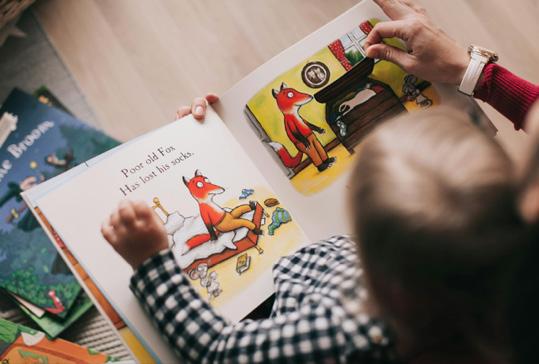
“My advice is, never do tomorrow what you can do today. Procrastination is the thief of time.” Charles Dickens, David Copperfield
In today’s technology dependent, fast paced and busy world, there is no shortage of distractions. Tik Tok trends, Snapchat streaks and Instagram stories not only take away time from reading, but it is also widely believed that they have an impact on attention span and our ability to achieve deep focus. In his best-selling book Stolen Focus (2021), researcher Jonathan Hari contends that not only are attention spans shorter, but our attention spans are being “stolen” by big tech who mine our attention for profits. Although many of us might believe that we’re effective multi-takers who
Photo by Lina Kivaka
can successfully complete a work task whilst simultaneously listening to a podcast, planning dinner, and replying to emails, in reality, our brain is switching back and forth between tasks, costing us not only the time spent on a different task, but also the time taken to re-focus. Hari refers to this as the “switch-cost effect” and argues that this is what is attacking our attention span. Time spent on deep focus - such as reading - can actually retrain the way we concentrate in ways which can benefit our attention span. Really, reading has never been more important for young people and their developing brains.
“The more that you read, the more things you will know. The more that you learn, the more places you’ll go.” Dr Suess
Additionally, there are a myriad of benefits to our children reading, both physically and mentally. On top of improving concentration levels, reading can reduce stress, increase empathy and lead to improved sleep if reading right before bed (compared to say, scrolling on a phone with its endless supply of dopamine, bluelight and images which generally highlight our feelings of inadequacy). One 2009 study by Sussex University researchers showed that reading may reduce stress by as much as 68 percent. In this study, cognitive neuropsychologist Dr David Lewis found that subjects only needed to read, silently, for six minutes to slow down the heart rate and ease tension in the muscles, whether that be reading a book or the newspaper. Conversely, multiple studies show that social media use is linked to decreased sleep and poorer mental health, (Muacevic and Adler, 2022). The benefits of reading include exposure to a wider vocabulary, other worlds and views, greater understanding of how texts are structured and - importantly - access to knowledge that is researched and verified. Reading for enjoyment has social benefits and can improve students’ sense of connection to the wider community as well as providing insight into human nature and decision making, (Underwood, 2021). The experts all agree that reading leads to further academic success in almost every measurable category.
“Nowadays people know the price of everything and the value of nothing.” Oscar Wilde, The Picture of Dorian Grey
The benefits of reading, however, are not new. Equally, whilst there are many avid readers at Luther College who regularly borrow large collections of texts from the library, the struggles of trying to encourage some teenagers to read is something that generations of parents have grappled with. Arguably, it has never been more difficult to convince some young people of the benefits of reading and potential for enjoyment when they have all of the world’s knowledge and content in a little black rectangle in their hands at all times. PISA (Programme for International Student Assessment) data shows the decline in Australian students’ reading achievement has occurred alongside a decline in their enjoyment of reading. Many parents agree with the benefits of reading and would love for their children to read more. So, what can we do as a community to instil a love of reading?
“Because that’s what Hermione does…when in doubt, go to the library. ” J.K Rowling
The Luther College Library is a centralised and thriving hub where students meet, socialise, enjoy quiet time and - of course - read. There is a wide and frequently updated variety of books, magazines, graphic novels, manga and nonfiction texts. For Acting Head of Library, Kathryn Van Winden, having a welcoming and comfortable space is central to establishing a love of literacy and reaping the benefits. “We know that kids who come from a print rich background have better academic and social outcomes,” she states. “Reading fiction develops literacy, increases vocabulary and writing skills, builds empathy and genres such as speculative fiction can even help us problem solve.” Kathryn and the library staff are passionate and knowledgeable about reading and helping students to find texts to thrill, engage and inspire. To this end, students are encouraged to recommend texts to library staff for purchase, are surveyed about their reading preferences and provided with agency and choice around their reading material. The Luther College Library is open every day from 8-4 and students are encouraged to, “borrow as many books as they can carry - and we’ll even provide a bag!”
Though once upon a time libraries may have gotten a bad rap for being silent and dour places, at the Luther College Library you might be just as likely to find groups of friends sitting together in the silent space reading together quietly, as you would find a group of boys huddled around the latest version of a PC magazine or students playing games in the social space. The library is not just a carefully curated selection of books (though it is that too) but a community utilised by a diverse range of students. The library staff are receptive to building on student interest and providing space for various activities. Kathryn recently noticed that students were utilising the Rubik’s cubes, and this has led to speed cubing competitions and even a Rubik’s cube club. Students are given the opportunity to join Kids’ Lit Quiz, Book Club, Book Week activities and quizzes and later this year will be holding a Library Community night with
renowned children’s author George Ivanoff. The benefits and value of reading are central to the vast array of programs and resources students can access.
“Books are a uniquely powerful magic.” Stephen King
Whilst there is no doubt that reading is beneficial to all subjects, this is particularly true in the subject of English or Literature. Through their time at Luther College, students study a vast array of texts, from the classics Macbeth, We Have Always Lived in the Castle and The Crucible, to graphic novels, anime and poetry. Students are explicitly taught skills in decoding, annotating, analysing texts, and unpacking character motivation, the author or director’s language and structural features, and the specific vocabulary needed to analyse each text type. There’s a reason why English teachers cringe when students in Year 12 proudly tell us that “they’ve never read a single English text” and it’s not just because of the many hours and endless discussions that take place about text selections in order to strike the right balance between rigour and enjoyment, modern and classics, settings and contexts. Rather, it’s because reading English texts is fundamental to the study of English. In order for our students to engage in rich discussion and analysis of Macbeth’s fateful decisions or the role of the non-linear narrative in Station Eleven, students must read the texts a number of times. Year 12 teachers suggest that before students sit the examination, they should have read their texts at least three times. Reading English texts is crucial for students to experience success in the subject.
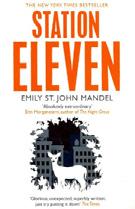
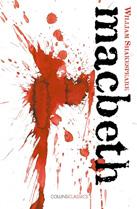
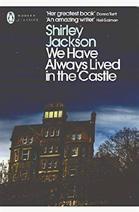
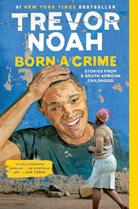
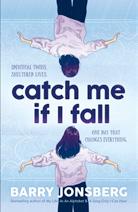
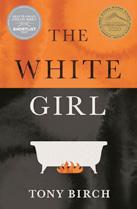

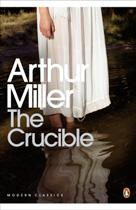
For students who struggle to read or engage with print texts or even those who just prefer the medium, audio books are a fantastic way to listen to books. Whilst there has been debate about whether listening to a text is as effective as reading in terms of comprehension, a 2016 study by Beth Rogowsy at Bloomsburg University of Pennsylvania found that reading comprehension of a book did not significantly vary between study subjects who read on a page, screen, listened to an audiobook, or some combination of reading modalities. At Luther College, students can borrow audio books through the Library Omnia page and also access their English texts via audio links. Students can train themselves to decode and analyse audio books in much the same way they do with print texts, and using this medium can actually increase student motivation. In an increasingly digital world, the fact that students can listen to a text on their phone or while in the car means that it has never been easier to access books.
“Writing comes from reading, and reading is the finest teacher of how to write.” Annie Proulx
Furthermore, the benefits of reading are not limited to text studies in English. There’s a famous saying that “not all readers write, but all writers read.” We know that young people who read can understand how and why texts are constructed in ways in which non-readers struggle to comprehend. In VCE when the terminology only becomes more challenging and the demands more rigorous, no matter the subject matter, the benefits of a more sophisticated vocabulary, understanding of different text types and ability to read for meaning is only magnified. In his novel On Writing, bestselling author Stephen King (2000) argues, “If you want to be a writer, you must do two things above all others: read a lot and write a lot. There’s no way around these two things that I’m aware of, no shortcut.” He also believes that everything we read has merit, because we “read to experience the mediocre and the outright rotten; such experience helps us to recognize those things when they begin to creep into our own work, and to steer clear of them”. In other words, all reading has value and is intrinsically linked with success in writing.
“It is our choices, Harry, that show who we truly are, far more than our abilities.” J.K Rowling
So, if we accept all the myriad of benefits that reading provides, how can we encourage our young people to read for pleasure? Acting Head of Library, Kathryn Van Winden has some valuable advice. “Life is busy and it can be hard to find quiet time and quiet space. If we can make those spaces for young people to read then that will help them,” she suggests. Kathryn also espouses the benefits of parents letting children go to a bookshop to choose something that ties into their interest areas and for parents to discuss what they’re reading with their children, whether that be a newspaper article, book, or even a work document. Many of the parents at Luther College read the English texts so they can discuss them with their children. Given that we are in the digital age, it makes sense to meet young people where they’re at in their learning. BookTok and book bloggers can offer recommendations, students can also share their own reviews online, and families can listen to audio books together. Creating a culture of reading in the home beyond those early literacy experiences has immeasurable benefits.
We know that life is busy and in 2024, there are any number of distractions. But given how crucial reading is to academic life, wellbeing and future success, we should do all that we can to wrestle our students away from their devices and dive into the world of reading. You only have to see a child’s joy when they find the green sheep “fast asleep” or the pleasure on Kathryn Van Winden’s face when she describes how a student who professes to hate reading told her enthusiastically that she’d finished reading a 300-page book to know that it matters. And that’s worth fighting for.
References
Hari, J 2022, Stolen Focus, Bloomsbury Publishing, United Kingdom.
King, S 2010, On Writing, Scribner, New York
Australian boys and girls enjoyment of reading: https://www.acer.org/au/pat/pat-insights/australian-boys-and-girls-enjoyment-of-reading
Does modality matter?
https://journals.sagepub.com/doi/full/10.1177/2158244016669550
Reading can help reduce stress https://www.telegraph.co.uk/news/health/news/5070874/Reading-can-help-reducestress.html
Social media use and its connection to mental health
https://www.ncbi.nlm.nih.gov/pmc/articles/PMC7364393/
What do Australian 15 year olds think about reading?
https://research.acer.edu.au/cgi/viewcontent.cgi?article=1013&context=snapshots
Luther College
Plymouth Road
Croydon Hills Vic 3136
Phone: (03) 9724 2000
www.luther.vic.edu.au
